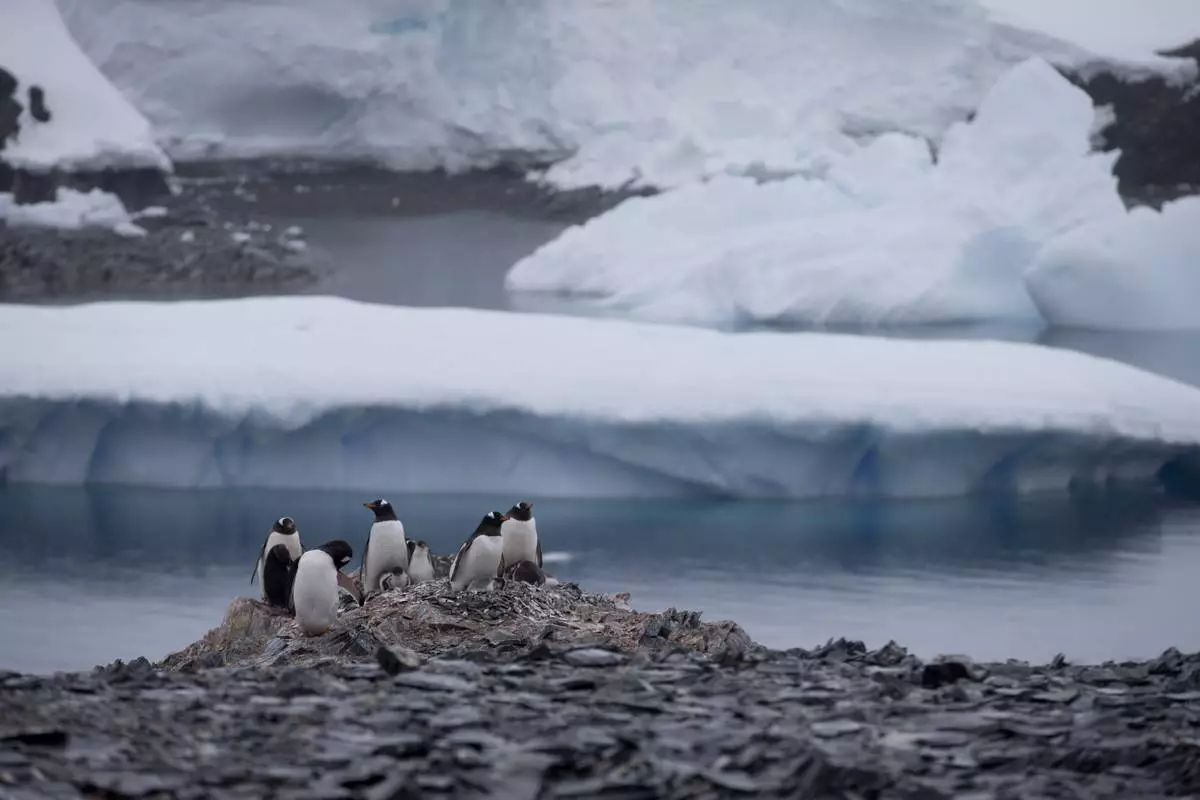A Chinese commercial aircraft successfully landed in Antarctica on Saturday night, marking the country’s first flight to the world’s southernmost region.
Carrying 22 Chinese tourists, this airplane by the HNA Group, took off from the Hong Kong Special Administrative Region on Thursday and refueled in Cape Town, South Africa after a 15-hour flight. It traveled another 5.5 hours before landing on the continent. The passengers, after taking some rest, continued their journey aboard a DHC-6 Twin Otter aircraft to the South Pole, which took another five to six hours.
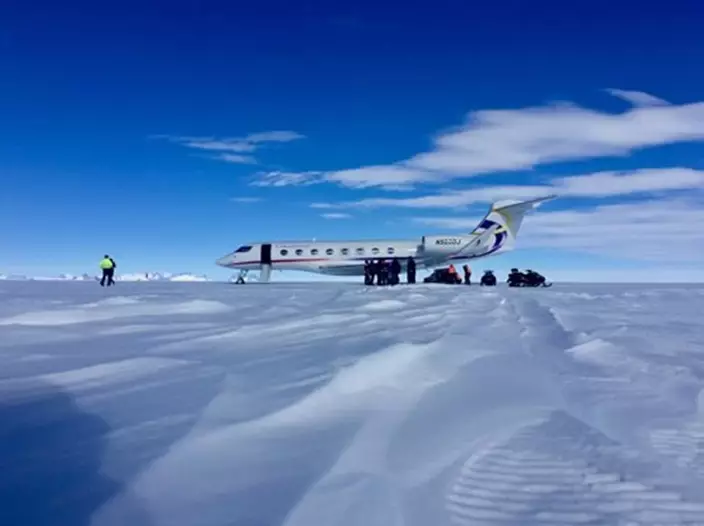
A Chinese commercial aircraft successfully landed in Antarctica on Saturday night. /Photo via globaltimes.cn
China has become the second largest tourist source of Antarctica, only next to the US. However, “prior to the launch of the new flight, China had not developed any tourism resources, nor had it participated in any form of rule-making in Antarctic tourism,” said a senior executive of the HNA Group to the Global Times.
Chinese tourists who wished to travel to Antarctica before had to choose a cruise operated by foreign countries, as none of the boats or airplanes qualified for a polar tourism operation belongs to China.
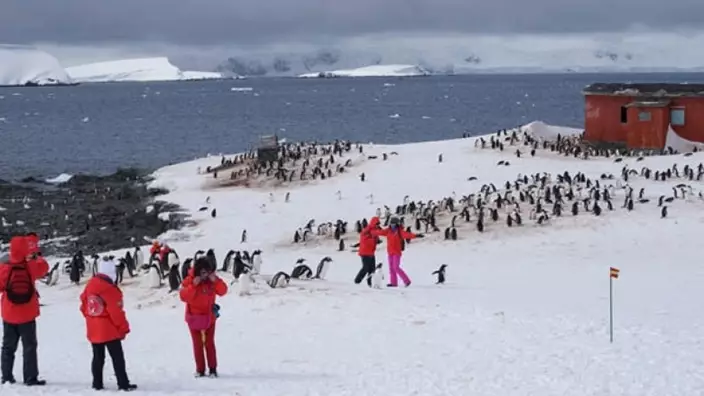
China's first commercial flight to Antarctica successfully landed on Saturday; carrying 22 Chinese passengers, the flight departed from the Hong Kong Special Administrative Region./NetEase Photo
This trip organized by the HNA Group had gone through a 10-year research, investigation and security tests, said the executive, adding that several other senior executives were also on this flight, representing the resolution of the Chinese corporation and social organization to break new ground for the country’s international tourism.
Wang Wen, executive dean of Chongyang Institute for Financial Studies affiliated to Renmin University of China, was stunned by the scenery of the southernmost region, saying it a destination one must go during the lifetime.
This flight will greatly promote Chinese people’s enthusiasm for the Antarctic tourism, which will further enhance their concerns over the Earth, including climate change and ecological conservation, said Wang. More importantly, promoting tourism there will significantly improve China’s involvement in the regional management, and enhance technological cooperation, environmental protection and compliance with relevant international laws.
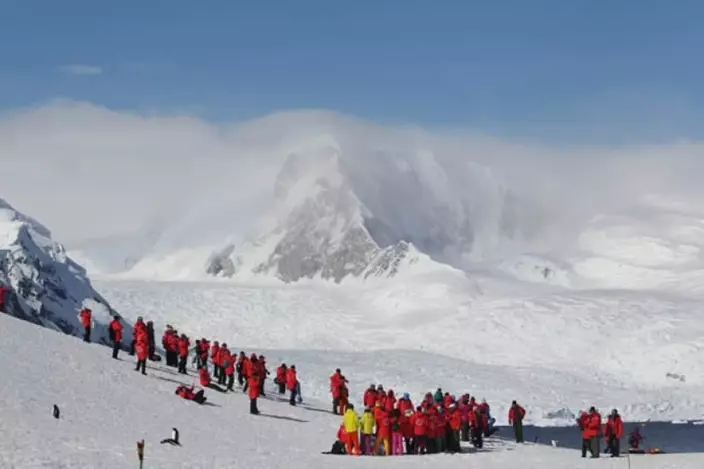
The number of Chinese tourists traveling to Antarctica has surged over the past decade, accounting for 12 percent of the total in 2016-2017 and is second only to the U.S, according to the statistics by the International Association of Antarctica Tour Operators./NetEase Photo
The HNA Caissa Trave Group will provide the whole tour reception service, and it is expected to launch tourism products related to the South Pole next year.
However, many insiders still believe that the flight is still at its exploration stage, according to Xinhua News Agency. Antarctica is a special zone. A flight from China will involve problems concerning international airspace and state territory, as it will pass through many countries. Secondly, the cost of the journey is so expensive that few tourists choose to fly to Antarctica. It still needs time to see whether consumers will accept and recognize tours to the isolated area.
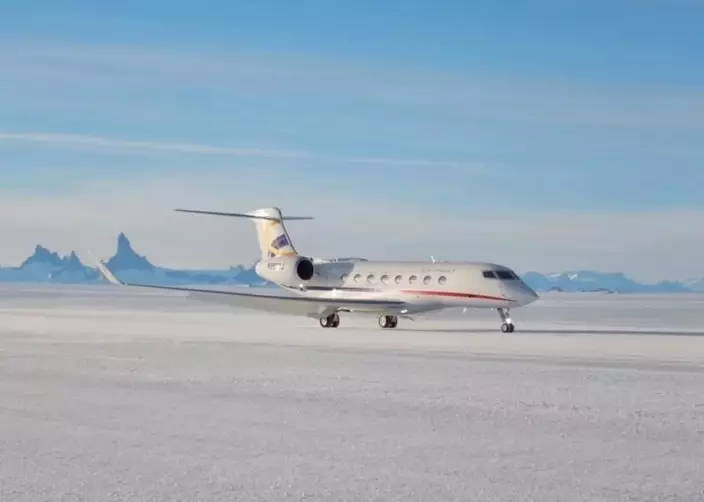
After a 15-hour flight and a transfer in Cape Town, South Africa, passengers took off for another 5.5-hour flight before landing at an airport in Antarctica./NetEase Photo



